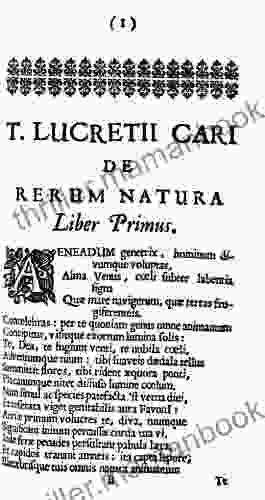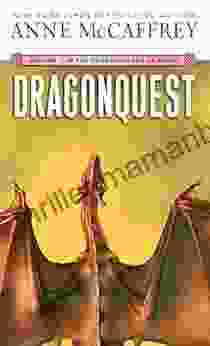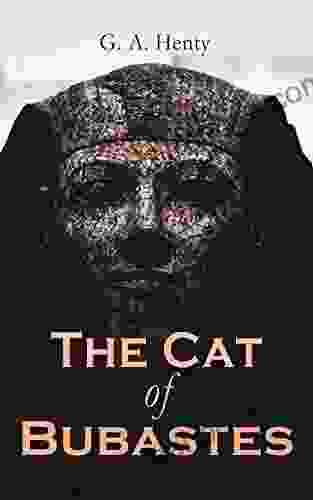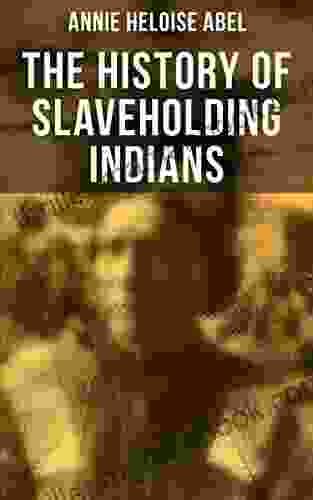De Rerum Natura: On the Nature of Things: An English Translation

4.2 out of 5
| Language | : | English |
| File size | : | 369 KB |
| Text-to-Speech | : | Enabled |
| Screen Reader | : | Supported |
| Enhanced typesetting | : | Enabled |
| Word Wise | : | Enabled |
| Print length | : | 230 pages |
| Lending | : | Enabled |
:
De Rerum Natura, translated as On the Nature of Things, is an epic philosophical poem written by the Roman poet Lucretius in the 1st century BC. This seminal work presents a comprehensive exposition of Epicurean philosophy, offering profound insights into the fundamental nature of reality, the universe, and human existence. Lucretius' masterpiece has captivated scholars, philosophers, and literary enthusiasts for centuries, inspiring countless scientific and intellectual advancements.
Historical Significance:
Lucretus' De Rerum Natura emerged during a period of intellectual and cultural upheaval in ancient Rome. The Roman Republic was transforming into an empire, and traditional beliefs and values were being challenged by new ideas and philosophies. Epicureanism, a school of thought founded by the Greek philosopher Epicurus, offered a compelling alternative to the prevailing religious and metaphysical notions of the time.
Lucretius' poem became a pivotal force in disseminating Epicurean ideas throughout the Roman world. It provided a comprehensive and accessible account of Epicurus' philosophy, making it available to a broader audience beyond the confines of philosophical schools.
Philosophical Tenets:
De Rerum Natura expounds on the core principles of Epicurean philosophy:
Atomism:
Epicureanism posits that the universe is composed entirely of indivisible and indestructible atoms. These atoms are infinite in number and vary in size, shape, and motion. The interaction and aggregation of these atoms give rise to all the phenomena we observe in the world.
Void:
The Epicurean universe is not a static, bounded space but rather exists within an infinite void. This void allows for the atoms to move and interact freely, creating the diverse and dynamic world we inhabit.
Swerve:
Lucretius introduces the concept of "swerve" to explain how atoms can collide and interact. He proposes that atoms occasionally deviate slightly from their straight paths, causing them to collide and form new combinations. This swerve is a crucial concept in understanding the formation of matter and the emergence of complexity in the universe.
The Absence of Divine Intervention:
Epicureanism rejects the notion of divine intervention in human affairs. Lucretius argues that the universe operates according to natural laws, without the guidance or interference of gods or other supernatural entities.
Literary Style and Structure:
De Rerum Natura is a masterpiece of Latin literature, combining philosophical depth with poetic brilliance. Lucretius' writing is both didactic and evocative, employing vivid imagery, metaphors, and rhetorical devices to convey complex ideas in an engaging and accessible manner.
The poem is divided into six books, each exploring different aspects of Epicurean philosophy:
- Book 1: to Epicureanism and the atomic theory.
- Book 2: Properties of atoms and the void.
- Book 3: Formation of the universe and the nature of the soul.
- Book 4: Sensation, perception, and knowledge.
- Book 5: Cosmology, astronomy, and meteorology.
- Book 6: Human nature, ethics, and the pursuit of happiness.
Influence and Legacy:
De Rerum Natura has had a profound impact on Western thought and culture. Its ideas on atomism, the void, and the absence of divine intervention laid the foundations for modern scientific inquiry and the development of the scientific method.
The poem's literary brilliance has also inspired generations of poets and writers. Its evocative language and philosophical insights have resonated with countless readers, including prominent figures such as Virgil, Cicero, and Montaigne.
English Translations:
Over the centuries, numerous English translations of De Rerum Natura have been produced, each offering unique perspectives and interpretations of Lucretius' original text:
- John Dryden (17th century): Dryden's translation is known for its poetic flair and accessibility, capturing the literary beauty of Lucretius' writing.
- William Ellery Leonard (20th century): Leonard's translation is praised for its accuracy and fidelity to the original Latin text, providing a more scholarly and comprehensive rendition.
- Ronald Melville (21st century): Melville's translation is a recent and highly acclaimed rendition, known for its clarity, readability, and insightful annotations.
:
De Rerum Natura remains a timeless masterpiece that offers an unparalleled exploration of the fundamental nature of reality and the human condition. Through its profound insights, literary brilliance, and lasting influence, Epicurus' philosophical masterpiece has shaped our understanding of the universe, ignited scientific inquiry, and inspired countless artists and thinkers throughout history.
Reading De Rerum Natura in translation provides a unique opportunity to delve into the depths of ancient Greek philosophy and experience the power of Lucretius' poetic genius. Its exploration of atomism, the void, and the human soul will continue to captivate and enlighten readers for generations to come.
4.2 out of 5
| Language | : | English |
| File size | : | 369 KB |
| Text-to-Speech | : | Enabled |
| Screen Reader | : | Supported |
| Enhanced typesetting | : | Enabled |
| Word Wise | : | Enabled |
| Print length | : | 230 pages |
| Lending | : | Enabled |
Do you want to contribute by writing guest posts on this blog?
Please contact us and send us a resume of previous articles that you have written.
 Top Book
Top Book Novel
Novel Fiction
Fiction Nonfiction
Nonfiction Literature
Literature Paperback
Paperback Hardcover
Hardcover E-book
E-book Audiobook
Audiobook Bestseller
Bestseller Classic
Classic Mystery
Mystery Thriller
Thriller Romance
Romance Fantasy
Fantasy Science Fiction
Science Fiction Biography
Biography Memoir
Memoir Autobiography
Autobiography Poetry
Poetry Drama
Drama Historical Fiction
Historical Fiction Self-help
Self-help Young Adult
Young Adult Childrens Books
Childrens Books Graphic Novel
Graphic Novel Anthology
Anthology Series
Series Encyclopedia
Encyclopedia Reference
Reference Guidebook
Guidebook Textbook
Textbook Workbook
Workbook Journal
Journal Diary
Diary Manuscript
Manuscript Folio
Folio Pulp Fiction
Pulp Fiction Short Stories
Short Stories Fairy Tales
Fairy Tales Fables
Fables Mythology
Mythology Philosophy
Philosophy Religion
Religion Spirituality
Spirituality Essays
Essays Critique
Critique Commentary
Commentary Glossary
Glossary Bibliography
Bibliography Index
Index Table of Contents
Table of Contents Preface
Preface Introduction
Introduction Foreword
Foreword Afterword
Afterword Appendices
Appendices Annotations
Annotations Footnotes
Footnotes Epilogue
Epilogue Prologue
Prologue John C Duval
John C Duval Liane Moriarty
Liane Moriarty Matthew Campbell
Matthew Campbell Kei Sasuga
Kei Sasuga Mary Lou Danielson
Mary Lou Danielson George Berkowski
George Berkowski Dave Hewett
Dave Hewett Malachi Jenkins
Malachi Jenkins Kevin L Gyoerkoe
Kevin L Gyoerkoe Markus Ray
Markus Ray Michael Cimicata
Michael Cimicata Jamal Abukou
Jamal Abukou Seanan Mcguire
Seanan Mcguire Peter O Mahoney
Peter O Mahoney Anthony T Kronman
Anthony T Kronman Susan Sallis
Susan Sallis Kim Stanley Robinson
Kim Stanley Robinson Barby Keel
Barby Keel Brenda Long
Brenda Long Jeff Lindsay
Jeff Lindsay
Light bulbAdvertise smarter! Our strategic ad space ensures maximum exposure. Reserve your spot today!

 Sammy PowellAtlas Hargrove: A Vigilante Justice Thriller That Will Keep You on the Edge...
Sammy PowellAtlas Hargrove: A Vigilante Justice Thriller That Will Keep You on the Edge... T.S. EliotFollow ·13.3k
T.S. EliotFollow ·13.3k Glen PowellFollow ·6.2k
Glen PowellFollow ·6.2k Cameron ReedFollow ·2.7k
Cameron ReedFollow ·2.7k Fletcher MitchellFollow ·8.9k
Fletcher MitchellFollow ·8.9k John ParkerFollow ·9.4k
John ParkerFollow ·9.4k Arthur MasonFollow ·6k
Arthur MasonFollow ·6k Jedidiah HayesFollow ·6.3k
Jedidiah HayesFollow ·6.3k Dion ReedFollow ·14.9k
Dion ReedFollow ·14.9k

 Caleb Carter
Caleb CarterThe Complete Beagle Dog Beginners Guide: Beagle Facts,...
Beagles are...

 Gage Hayes
Gage HayesThe Origins and Evolution of No Child Left Behind:...
The No Child Left Behind...

 George Martin
George MartinThe Love Pirates: A Swashbuckling Tale of Love,...
The Love Pirates is a thrilling...
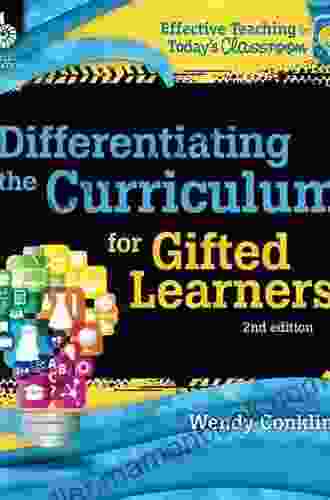
 Nathaniel Hawthorne
Nathaniel HawthorneDifferentiating the Curriculum for Gifted Learners:...
Gifted learners are...
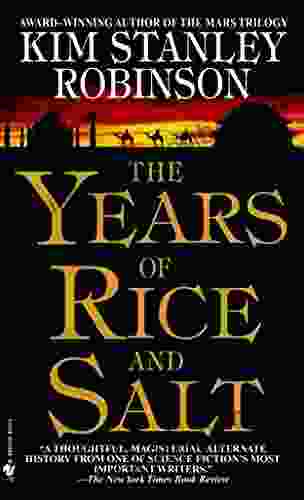
 Carlos Fuentes
Carlos FuentesThe Years of Rice and Salt: A Journey Through a Forgotten...
The Years of Rice and Salt is...

 Herbert Cox
Herbert CoxThe Intricate Design of Clothing Manufacturing Processes:...
The clothing industry is a vast and...
4.2 out of 5
| Language | : | English |
| File size | : | 369 KB |
| Text-to-Speech | : | Enabled |
| Screen Reader | : | Supported |
| Enhanced typesetting | : | Enabled |
| Word Wise | : | Enabled |
| Print length | : | 230 pages |
| Lending | : | Enabled |


